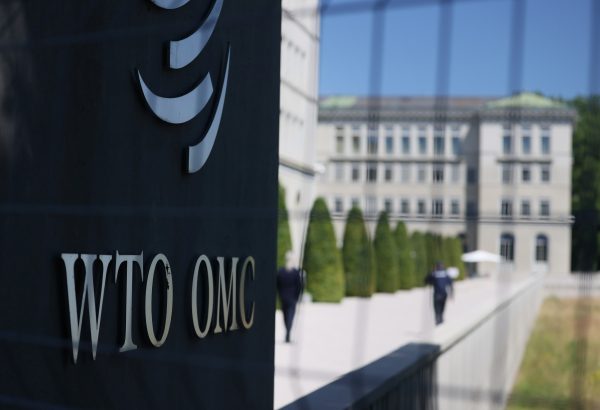WTO Director-General Ngozi Okonjo-Iweala has identified the key areas that will require close attention if MC13 is to succeed and fulfil the promises of the 12th WTO Ministerial Conference (MC12) — food security, fisheries subsidy disciplines, the development dimension of trade, dispute settlement reform, intellectual property rights and e-commerce.
Each of these topics warrants attention — and each raises difficult issues.
Key issues include addressing purchasing power difficulties of the poorest communities, gaining additional acceptance of the WTO Agreement on Fisheries Subsidies and helping countries that lose support as they graduate from Least Developed Country status. Other issues include addressing the US conviction that the WTO Appellate Body jurisprudence is openly hostile to trade defence instruments, resolving the paradox of patents and meeting the twin goals of data security and data access in the promotion of digital trade.
But there is an overriding challenge facing MC13. The liberal trading order is under siege as world trade becomes increasingly weaponised through targeted government interference, with imports, exports and state-funded subsidies all utilised in the pusuit of other goals. The evidence is clear — the stockpile of G20 trade restrictions has grown more than tenfold since 2009.
There are four interlinked motivations for using trade as a weapon when pursuing other objectives
First, trade can be curtailed to sanction aggression — notably in the case of Russia’s aggression against Ukraine which has caused major collateral damage to international grain supplies. Second, to arm the global value chain to increase self-reliance, particularly in semiconductor production. Third, to execute trade remedies in self-defence, as with the Trump and Biden administrations’ penalty tariffs on imports of steel and aluminium. Fourth, to ‘serve’ science in the interests of the environment and public health, whether through restrictions on trade in key solar energy components or the US$122 billion export restrictions on COVID-19 treatment products.
Crucially, the weaponisation of trade for other purposes has been made possible by a pervasive questioning of the gains from international trade and investment — not only by traditional sceptics on the left but also, now, by the populist right.
For MC13 to build on the promise of MC12 and lay solid foundations for durable progress, it is imperative that in addition to addressing the key challenges identified by WTO Director-General Okonjo-Iweala, alternatives to trade weaponisation are sought and that the discontents of trade are seriously addressed.
In the lead up to MC13 and beyond, this means pursuing the need for diplomatic carrots to accompany the sanctions stick. It is also essential to build resilience in supply chains through sound domestic policy instead of increased self-reliance, such as in the form of re-shoring and friend-shoring. Critical for the continuation of the liberal trading order are multilateral WTO remedies to rulebreaking instead of power-based penalties in the name of national sovereignty, and direct action on environment and public health goals instead of the blunderbuss of trade restrictions.
But to restrain the damaging subordination of trade policy to other ends, governments must also address the discontents of trade. Governments should do more to help the losers of trade opening, adjust to technological change and make the case for open markets — not least by showing how trade weaponisation brings harm to both the user and the target. For example, US steel consumers now pay an estimated extra US$650,000 per year for every job saved by Trump-era penalty tariffs kept by the Biden administration.
No item on the MC13 agenda is more important than dispute settlement reform. Without full restoration of the WTO dispute mechanism, it will be extremely difficult to restrain the use of the trade weapon — whether by unilaterally breaching bound tariffs or by unjustifiably invoking General Agreement on Tariffs and Trade Article 21 to restrict trade in the name of ‘essential security interests’. With just a modicum of flexibility, particularly from the United States and China, dispute settlement reform should be a feasible deliverable at MC13.
While responsibility for strengthening the trading system rests with the leaders of the G20, it is ultimately in the capitals of the major traders — in Washington, Beijing, Brussels and Tokyo — that the fate of MC13 will be determined.
The danger of restrictions on trade is real. Growth in the volume of world merchandise trade is expected to fall from 2.7 per cent in 2022 to 1.7 per cent in 2023. And the stakes are high. Failure to strengthen the trading system and the liberal order that underpins it will put three decades of growth and development made possible by globalisation at risk, and the ability to successfully deal with the next pandemic and the climate transition.
Ken Heydon is a former Australian trade official and senior member of the OECD Secretariat, and Visiting Fellow at the London School of Economics and Political Science.
This article draws on the author’s forthcoming book, The Trade Weapon, to be published in November 2023 by Polity.

